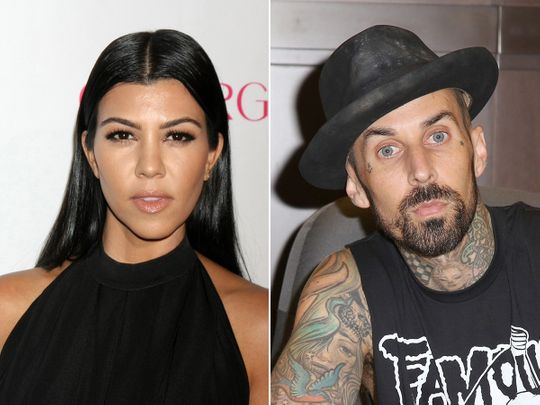
American media personality Kourtney Kardashian has made no secret of wanting a large brood, but the mum of three recently spoke up about her difficulties in conceiving number four with fiancé Travis Barker.
In a clip promoting the new ‘Kardashians’ reality show, 42-year-old Kourtney spoke about undergoing in vitro fertilization (IVF) and being swept, she claimed, “into menopause”.
We asked the experts if fertility treatments can indeed cause premature menopause.
But first, what exactly is menopause?
Dr Dimitrios Kafetzis, Medical Director at UAE-based Orchid Fertility clinic, explains: “Menopause and the peri-menopausal period (defined as the last year before periods disappear) mean that the ovaries have run out of oocytes (eggs).”
And how does IVF work?
“IVF is a complex series of procedures that involves monitoring and stimulating a woman’s ovaries to produce more eggs, collecting the eggs under anaesthesia with the help of ultrasound, fertilizing the eggs with the husband’s sperm in the laboratory, growing the embryos inside the laboratory and transferring them back to the woman in order to increase the chances of a pregnancy,” says Maria Banti, Laboratory Director and Senior Clinical Embryologist at Orchid Fertility.
Does IVF deplete egg reserves?
"During each menstrual cycle, several ovarian follicles start growing in response to the follicle-stimulating hormone (FSH) secreted by the pituitary gland. Of these recruited follicles, only one follicle grows to maturity, and this is called the dominant follicle. It carries the mature egg which will be released during ovulation. The other follicles which fail to reach maturity are lost. They die, and this natural process is called atresia," adds Dr lamia Al Sayegh, Specialist Reproductive Medicine and Infertility at UAE-based Fakih IVF Dubai.

During IVF treatment our body is supplied with high amounts of FSH in the form of injections. This high amount of FSH helps to rescue more of the follicles which are recruited during that particular menstrual cycle. This is the reason why IVF specialists are able to harvest several eggs during an IVF treatment. This is also the reason why IVF treatment will not deplete the ovarian reserve
"During IVF treatment our body is supplied with high amounts of FSH in the form of injections. This high amount of FSH helps to rescue more of the follicles which are recruited during that particular menstrual cycle. This is the reason why IVF specialists are able to harvest several eggs during an IVF treatment. This is also the reason why IVF treatment will not deplete the ovarian reserve," Al Sayegh explains.
“Typically, there are 15 to 20 egg sacks that are available for most of the women, from age 20 to 40 [per cycle]. Nature allows only one egg to be used, the rest of the eggs perish by natural death. In fertility treatments, we stop the natural wastage of 99 per cent of the eggs that are available each month. In a typical fertility treatment [journey] of any couple there are three to five IVF cycles, there is no chance of risk of premature menopause with this approach,” adds Dr Karunakar Marikinti, Consultant IVF, Obstetrics and Gynaecologist at UAE-based Prime Hospital.
Any exceptions?
Dr Marikinti admits that in fact in very, very rare cases – i.e. 1:10,000 – IVF injections can cause issues. “Rarely, severe complications may happen in 1 in 10,000 where ovaries react and run into complications of bleeding haemorrhage torsion where ovaries may have to be removed. Obviously that will reduce the ovarian reserve if both ovaries have to be removed, but that’s exceptionally rare.”
So why would Kourtney think she’s plummeting into menopause?
Dr Kafetzis says that multiple studies have shown that “…women who had multiple IVF cycles over a period of years reached menopause at the same time as other women with the same ovarian reserve who did not undergo IVF.”
However, he says, the hormonal injections can cause hot flushes and bloating as well as dehydration and headaches. Women with migraines may get an episode. “Fortunately, these symptoms only affect around 20 to 30 per cent of women in IVF and all disappear immediately after stopping the hormones,” he adds.
Have a question you want answered by an expert? Write to us at parenting@gulfnews.com








